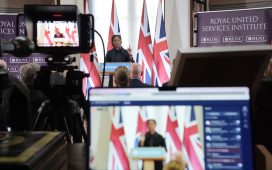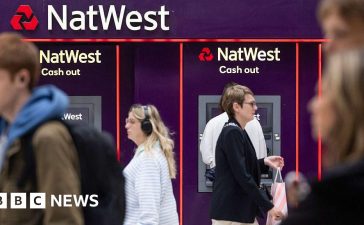 PA Media
PA MediaThe Northern Ireland Executive has signed off on a draft programme for government, more than seven months after the return of Stormont.
Its failure to agree one up until now had been the subject of criticism.
Speaking at a press conference following a meeting of the executive, First Minister Michelle O’Neill said agreeing the draft programme “marks a really important step in our journey as a four-party executive”.
Deputy First Minister Emma Little-Pengelly said “despite the difficult budget we can still improve lives in a meaningful way by focusing on a small number of prioritised action that will make a difference”.
The full contents of the programme will not be known until Monday because convention dictates it is shown to assembly members first before the public gets to see it.
The executive also agreed a strategy to try to end violence against woman and girls and a domestic and sexual violence strategy during its meeting on Thursday.
Nine key priorities
 PA Media
PA MediaMs O’Neill described the draft programme as a “significant strategy” and “wide-ranging programme”.
Ms O’Neill said ministers were determined to “provide hope and create opportunities… with the budget that we have”, but added that “the battle for additional finance, for a proper financial model for this place is top of our agenda”.
Mrs Little-Pengelly said that over the next few weeks ministers would “engage with people right throughout Northern Ireland about our plan”.
“We genuinely want to hear from people about how we can improve lives for the better, ” she said.
The nine priorities for the government are:
- grow a globally competitive and sustainable economy
- deliver affordable childcare, cut health waiting times
- end violence against women and girls
- better support for children and young people with special educational needs
- provide more social, affordable and sustainable housing
- safer communities
- protect Lough Neagh and the environment
- reform and transformation of public services.
The deputy first minister said that progress against the priorities would be measured on a “month-by-month basis”.
Justice Minister Naomi Long said that ministers “don’t underestimate the challenge that we face in a short mandate with extraordinary financial pressure”.
The Alliance Party leader said that the draft programme was not an “exhaustive list” of everything the executive would do, but would “prioritise certain aspects of the work of the executive”.
Health Minister Mike Nesbitt he was “pleased that during the course of the meeting, everybody around the table agreed that once with criticise the programme for government we have to link it really clearly with the budget”.
The incoming UPP leader said that devolution was about people “coming together, forming relationships and doing there best in terms of better outcomes for the people they serve”.
 PA
PAThe last time a Stormont executive managed to agree a programme for government was for the period 2011-2015.
They also agreed one in 2016 which went out to public consultation. But before it could be passed the then Sinn Féin deputy first minister Martin McGuinness resigned in January 2017 and the executive fell.
When the executive returned in January 2020, Covid quickly dominated business and scuppered any chance of a programme for government being agreed.
Earlier, SDLP assembly member Matthew O’Toole, Stormont’s leader of the opposition, called on the executive to tackle issues including the health service which he said was “broken”, a “house building crisis” and an “ecological crisis” at Lough Neagh.
Mr O’Toole told Good Morning Ulster that in order to address these issues the programme for government would need to set “clear targets” that had a timeline and “specific actions” towards achieving them.
Ann Watt, director of the think tank, Pivotal, issued a report this week which, while recognising some progress had been made, said the failure to agree a programme for government was “a big shortcoming”.

People Before Profit assembly member Gerry Carroll criticised the executive for the slow progress on reaching a programme for government.
He told BBC News NI there had been “multiple crises”, adding “they don’t seem to have any plan to deal with these”.
“They need to come clean with a plan of action to deal with some of the crises that people are facing because the credibility of the executive is wearing thin and people are seeing them as not doing much at a time of hardship,” he continued.
What is a programme for government?
Programmes for government are published by the devolved governments as a way to set and measure long-term goals.
A programme for government is outcomes based.
These outcomes can be things with which people can identify, such as living longer and healthier lives or attracting better jobs – and are designed to stay in place for a generation rather than a single Assembly term.










